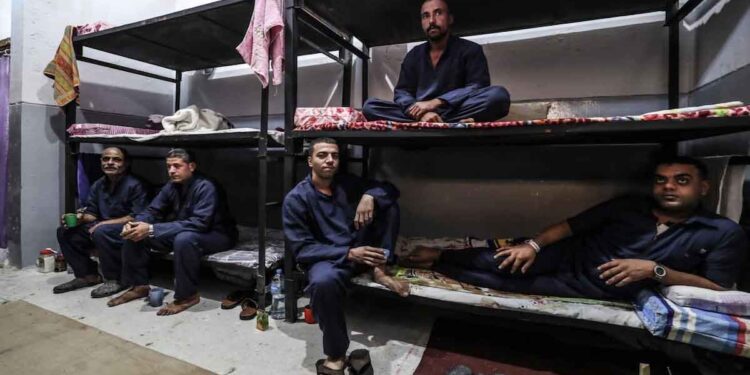Egyptian president Abdel Fattah Al-Sisi has built the largest jail the country has seen in recent history, and recent investigations have revealed the scale of its operations.
The Wadi El-Natrun Prison Complex 2.0, based in the Beheira governorate, appears to be built to hold around 34,000 inmates. However, with the Egyptian regime’s reputation for overcrowding their prison facilities, it could potentially hold double that number.
Egypt’s current prison population is reportedly 120,000, meaning that Wadi El-Natrun could allow this to expand by more than 50%.
Data, including first-hand testimonies and satellite images, analysed as part of a report on the We Record website suggests that the prison would also have an on-site court complex, intelligence office, a hospital, mosques – and even other prisons. Smaller structures are also present, which may be solitary confinement cells.
Freely available data from online maps appears to show that in September 2020, the site of the new prison was still farmland – but by March this year showed a sprawling complex built across 216 hectares. Its perimeter is made up of two reinforced concrete walls, each side of which stretches for more than 1.3km. Watchtowers have been built across the outer walls.
Sisi only admitted the existence of the new prison complex on 15 September 2021, during an interview for state television.
While the Egyptian regime is secretive about its prisons, it is thought that by 2016 Sisi had built 13 new jails as a means to hold thousands of political prisoners arrested since he came to power in 2013.
Any public criticism of the regime can result in disappearances, forced confessions and corrupt trials – with the death penalty often employed to silence dissent.
The construction of this latest prison suggests that Sisi has no plans to scale back his crackdown on opponents – and perhaps even fears another uprising against the regime.
Egyptian prisons are notoriously brutal, with inmates kept in unsanitary cells without sunlight, and with limited access to food and medical care. Prisoners are routinely held without charge for long periods of time, with no access to their families or legal representation.
Torture is often employed and there is little oversight of how the prisons operate, aside from those written by government departments themselves.
As a result of these appalling conditions, suicide rates are soaring among inmates.






























